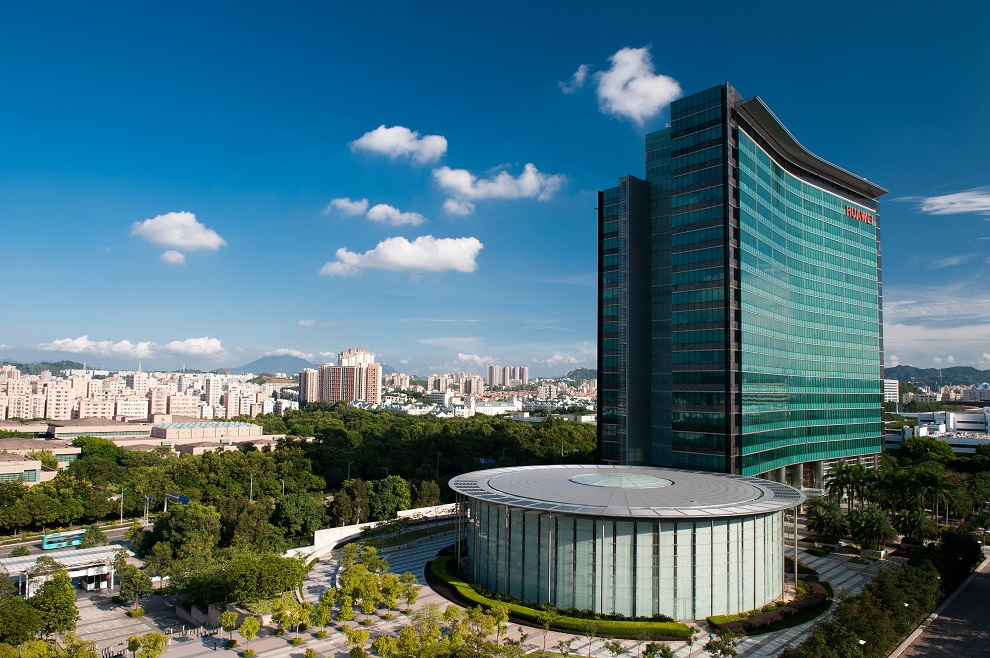Khalid Athar
The US and China are engaged in a fierce technological rivalry that will shape the industry’s future for years to come. The outcome of this competition will have significant implications for the world economy, politics, and security.
This rivalry took a severe turn in 2019 when the US government announced sweeping sanctions against Chinese tech companies, blocking access to the US market. A series of executive orders and laws followed, further restricting China’s access to crucial American-made components.
The contest spans various domains but is especially intense in artificial intelligence (AI) and 5G. These two technologies are seen as crucial for the future of innovation, productivity, competitiveness, and security.
The US banned its carriers from using 5G equipment from China and then pressured its Western allies to take similar actions. Not only does the fifth generation of mobile network technology enable faster and more reliable data transmission, but it also supports emerging technologies such as autonomous cars, smart factories, and smart cities. America also restricted Chinese access to the powerful chips that power AI systems such as Generative AI.
China has, in response, pursued an aggressive policy of self-reliance, particularly in semiconductors, the new engine of the global economy. This is evident in R&D investments; China registered 4.212 million valid patents as of 2022, making it the first country to pass the threshold of 3 million. By 2022, China owned nearly 40 percent of the standard essential patents for 5G technology, which gives it influence over the direction of 5G innovation and development.
In artificial intelligence, China‘s massive data pool, talent, and investment enable it to develop and deploy advanced AI applications in various sectors. The country has a national strategy to become a global leader in AI by 2030.
Huawei, the leading tech brand to emerge from China, quickly found itself in the crossfire of the US-China tech war. The US specifically targeted the company, including placing it on the ‘Entity List,’ which severely hampered access to American technology, citing vague ‘national security’ concerns.
In turn, Huawei has strengthened its investment in R&D, with an annual expenditure of USD 23.22 billion in 2022, representing 25.1% of the company’s annual revenue and bringing its total R&D expenditure over the past ten years to more than USD 140.55 billion. The company ranked fourth on the EU Industrial R&D Investment Scoreboard. By the end of 2022, Huawei held a total of 120,000+ active patents.
Over time, the real motive behind the US’s actions has emerged: America seeks to curb Chinese leadership in 5G and other emerging technologies and preserve US dominance in the global marketplace.
Indeed, senior US officials have openly expressed their desire to keep Huawei out of Western markets and to promote US tech commercial interests. Former US Secretary of State Michael Pompeo went so far as to say that Europe “needs to get” Huawei “out of their system” as part of ensuring “that the next century remains a Western one.” Not to be outdone, ex-US Attorney General William Barr was quoted as saying that some private American businesses are actually the “problem” for not doing enough to maintain American strength. Barr advocated for “cracking down” on Chinese researchers “who are sent over to get involved in our key technological programs”, urging the West to shut out Chinese companies like Huawei and prefer Western brands such as Finland-based Nokia and Sweden’s Ericsson regarding 5G.
While these actions have slowed down Huawei’s development, customers are ultimately paying the price. Across Europe, countries that followed the US lead and excluded Huawei from 5G development now lag behind 5G rollouts and will eventually fall behind the digital transformation race.
Evidently, many countries that caved under US pressure have faced delays and difficulties in deploying 5G networks, as reported by a German media outlet; an essential for the digital economy. They have fallen behind in the European Commission’s Digital Economy and Society Index, which measures aspects like network connectivity and digital skills. Moreover, they have missed out on the benefits of 5G, such as faster speeds, lower latency, and more applications in areas like smart cities, autonomous vehicles, and IoT.
Further, considering that 5G is a catalyst for innovation and growth, excluding Huawei from 5G development hampers the potential of businesses and entrepreneurs in these countries to create new solutions and opportunities. The UK is a case in point, where the ban on Huawei has slowed down the 5G rollout and increased costs for operators and consumers.
Notably, Huawei’s global competitors, such as Ericsson’s CEO, have criticized the ban for limiting free trade and competition and hurting their own interests. The ban also gives the US an unfair advantage in the Chinese market, whose companies can get exemptions while excluding other countries from accessing its vast potential.
The ban also presents serious consequences for the European semiconductor industry, which relies on Huawei as a significant customer. One of the largest chipmakers, STMicroelectronics, had to delay its revenue target due to US sanctions. To cope with the challenge, 17 EU member states have launched an initiative to invest in processor and semiconductor research. Inside the US itself, companies such as Intel, Qualcomm, and Xilinx have lobbied to ease the restrictions on Huawei, fearing the loss of profits and market share. Before the restrictions, Huawei bought components worth $11 billion from US tech companies.
Fortunately, many Middle Eastern countries have taken a neutral stand on the US/China standoff and instead focused on taking actions that benefit their IT infrastructure development and economies. As a result, countries in the region are pioneers in 5G network rollouts and are raking in the benefits of digital transformation. The 2022 IMD World Digital Competitiveness Ranking positions the UAE at position 12 globally, well ahead of Western nations such as the UK and Germany. Huawei has also launched a cloud region in Riyadh, Saudi Arabia, a significant boost for the Kingdom’s digitization goals and Vision 2030. In conclusion, while we all agree that national security is a valid concern, it should not be used as a pretext for protectionism and nationalism. The US ban on China’s technology is a short-sighted and counterproductive move that harms the global tech industry and consumers.








